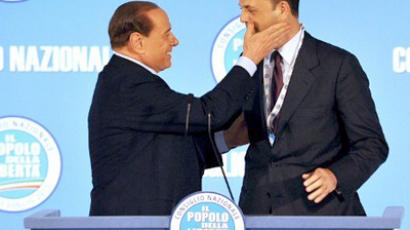Eurozone crisis: Will the Full Monti 'Save Italy'?
Italy’s premier has promised a new package of measures to start the country’s sluggish economy. But can Mario Monti’s technocratic approach rescue the eurozone’s third-largest economy, which finds itself at the heart of the European debt crisis?
Speaking at a year-end press conference on Thursday, Prime Minister Mario Monti said his government would seek an even broader package of welfare and market reforms by the end of January to boost growth, Reuters reports. While no specifics have been released, the proposed measures will most likely follow the prime minister’s “Save Italy” plan, which received the final seal of approval in the Italian Senate last week. The emergency austerity budget included tax hikes, pension cuts, an increase in the retirement age and measures to combat tax evasion. Prior to presenting the package to parliament, Monti admitted that the budget would weigh heavily on the country, which saw mass protests in opposition to the deeper austerity cuts that hit Italy last month.However, he also believed that to reverse “the negative spiral of growth in debt” and sluggish economic growth, the divisive package had to be passed."Without this package, we think that Italy would have collapsed, that Italy would go into a situation similar to that of Greece," he told a group of journalists before presenting the package to parliament.As the third-largest economy in the eurozone with nearly a decade without economic growth and a debt to GDP ratio of 120 per cent, an Italian default could sink the monetary union.Moreover, Johan van Overtveldt , the editor-in-chief of Trends magazine, told RT that, while Monti has a lot of work ahead of him in the coming year, the fate of the eurozone will largely depend on the European Central Bank.“I think two things are quite clear at the moment in terms of what can be expected for the coming year. First of all, I think we will see an exit of Greece. Given the situation in which the Greek economy has found itself, that has become really unavoidable. Secondly, in terms of what will happen inside the eurozone, a lot will depend on the attitude that is taken by the European Central Bank. Will they intervene more or less? That is one of the key questions that need to be answered and it is very hard to predict what the answer will be in terms of what will happen to the eurozone next year.”














